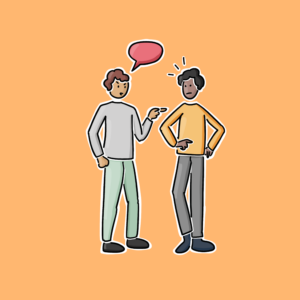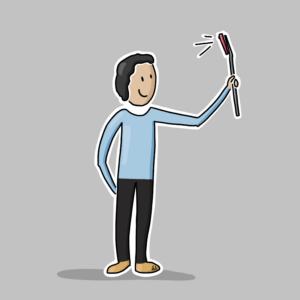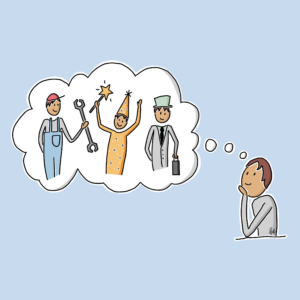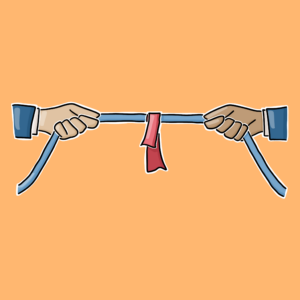

Meetings are the bedrock of getting things done in organizations, or at least they could be. Despite all the practice we get, most people complain about meeting quality. Don’t expect them to improve on their own.
Eric Barker’s Barking up the Wrong Tree blog has pulled together useful meeting resources in an article 5 ways to improve those awful meetings at the office. I can vouch for his second way: In my experience, meetings held standing up go more quickly. He links to a study that reports sit-down meetings are 34% longer. His fifth way reveals the best time of the week to improve attendance; so, if you need to get as many people as possible together, aim for 3pm on Tuesdays!
In an older article, Meeting Interruptus, I point out the importance of turning off distracting devices so that people can focus on the topic at hand. No e-mail ping from your computer, no reassuring buzz from your phone or tablet. This improves conversation quality and reduces time-wasting lulls.
The seventh way to improve meetings is to apply a simple equation: No Agenda = No Meeting.
And a bonus: Open Space, developed by Harrison Owen, is one of the meeting formats I use when working with large groups. It’s based on four principles, each of which can help you to improve your (non-Open-Space) meetings.
- Whoever comes is [sic] the right people: You need the people who are interested in the meeting, not necessarily “important” people. Even if you’re slightly annoyed that a particular person has turned up for your meeting, just remember that they’re there because they’re interested. And if someone is missing, who you hoped would attend – your topic is not yet on their agenda.
- Whenever it starts is the right time: As Harrison says, “spirit and creativity do not run on the clock.” You may even call a meeting to discuss your great idea, and nobody turns up! This could be because the idea is no good, or nobody else recognizes its worth. No worries, use the meeting time – when was the last time you could work undisturbed for an hour or more on one of your ideas.
- Whatever happens is the only thing that could have: You may start a meeting with a preconceived notion of its outcome. However, as conversations develop and ideas spark each other, your idea might well morph into something else. No amount of fretting can change that. Get on with it!
- When it’s over, it’s over: If all has been said that needs to be said in a meeting, instead of finding ways to fill up the time, just finish early and let everyone enjoy the gift of some unstructured time.
One client company I worked with liked this 4th principle so much that it adapted it as a custom for all off-site meetings. Late afternoons there was always a 90 minute period in the agenda so that participants could either catch up with each other about ideas, projects or other bilateral conversations, or simply use the time to chill.
In addition to the four principles, Open Space also has one law, traditionally called the Law of Two Feet, or more recently, the Law of Mobility. Simply put, if you find yourself in a meeting where you are neither learning nor contributing, you are legally obliged to move yourself somewhere else and leave this particular meeting. Think about this the next time you find yourself in a meeting where someone is hogging the conversation.


